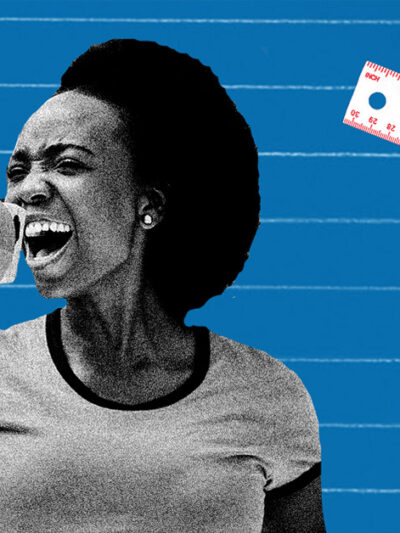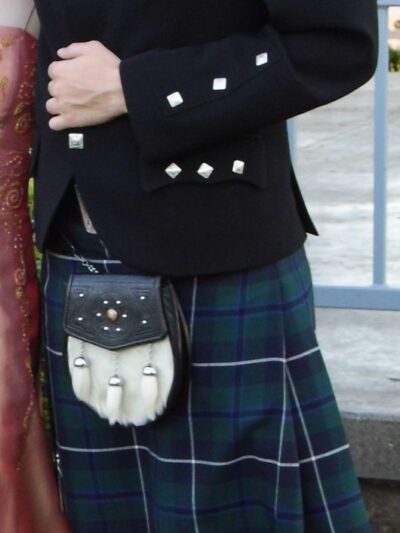News & Commentary
Know Your Rights Back to School
Students who are well-informed about their rights can go to school confident in the knowledge that students and their rights—to privacy, to speak freely, to be treated fairly—are protected by the laws and Constitution of the United States.
By Devraat Awasthi

The Role of Legal Observers
Legal Observers are trained volunteers who monitor and document law enforcement and other public officers’ interaction with people in Oklahoma who are participating in the democratic process by protesting, voting, or attending public meetings.
Oklahoma Legislature Midsession Review 2023
In the face of continued discrimination in our state, we celebrated amazing wins for the rights of many Oklahomans. As these laws become closer to reality, we will continue to track these bills in the Capitol and brace to defend our civil liberties after this session adjourns.
By Cindy Nguyen

Constitutionality of Oklahoma City Municipal Sign Code
We sent a demand letter to OKC requesting the repeal of its ordinance banning political and social signs on medians, roadsides, and street corners. Oklahomans have the First Amendment right to speak in the public square, including on medians and other public areas around roadways.
The Breakdown: Week of March 7, 2022
The ACLU OK Oklahoma's weekly policy and advocacy newsletter.

The Breakdown: Week of February 28, 2022
The ACLU OK Oklahoma's weekly policy and advocacy newsletter.

Proposed Policy Regulating the Use of County Property for Free Speech Activities
Oklahoma County Commissioners are voting on an unconstitutional attempt to limit free speech tomorrow, 8/12, at 9 AM. This afternoon we sent the following letter to all commisioners noting that if enacted – let alone enforced – the County can expect the ACLU of Oklahoma to challenge the Policy as an impermissible burden upon the First Amendment to the United States Constitution.

Anti-Panhandling Case Headed to the 10th Circuit
On November 19th, our team will be in Denver, CO for oral argument in front of the 10th Circuit Court of Appeals in McCraw, et al. v. Oklahoma City, our free speech challenge against Oklahoma’s City's anti-panhandling ordinance. This case is about protecting the freedom of speech for Oklahomans.
By Megan Lambert

High School Student Creates First Amendment Teaching Moment for Administration
Kellyville, OK—You would be excused for not associating a high school prom with the First Amendment, but when Kellyville Public School officials recently told a student he would be denied attendance to prom if he wore a kilt, they turned a high school rite of passage into a teaching moment about the Constitution and protected speech. After visiting with the student’s father, the American Civil Liberties Union of Oklahoma sent a letter to Kellyville High School. Shortly after receiving the ACLU of Oklahoma’s letter, school officials withdrew the prohibition and the student successfully exercised his freedom of expression at his prom.This incident is just one of many similar battles fought at the intersection between schools’ attempts to enforce discipline and the protection of students’ constitutional rights. The U.S Supreme Court has recognized that clothing—even student clothing—is a form of expression entitled to full protection of the First Amendment of the United States Constitution. And it has long held that students “do not shed their constitutional rights to freedom of speech or expression at the schoolhouse gate.” Even when the speech occurs in a traditional school setting like a classroom—as opposed to the more free and open social environment of a dance—school officials must still prove that the forbidden conduct would substantially interfere with the operation of the school or would impinge upon the rights of other students.While the enforcement of a dress code does not automatically violate students’ constitutional rights, school officials must apply a dress code in accordance with the U.S. and Oklahoma Constitutions. In the case of Kellyville High School, kilts are not offensive to the school’s dress code and had been allowed at school events in the past. The ACLU of Oklahoma argued that it was “difficult to perceive how a kilt might substantially interfere with the operation of a school classroom, let alone a school dance.”While the wearing of a kilt may seem like a minor issue in the grander scheme of civil liberties, the ACLU of Oklahoma believes such issues present an opportunity for students to learn the invaluable lesson of standing up for their rights. The ACLU of Oklahoma closed its letter to Kellyville Public Schools by encouraging the administration to let students exercise their protected rights to the extent provided by law, stating that “doing so would not only teach students the value of their speech, but would set an appropriate example of respect for the law and for the civil rights of others.”
By Bryan Newell

Stay Informed
Sign up to be the first to hear about how to take action.
By completing this form, I agree to receive occasional emails per the terms of the ACLU’s privacy statement.
By completing this form, I agree to receive occasional emails per the terms of the ACLU’s privacy statement.
